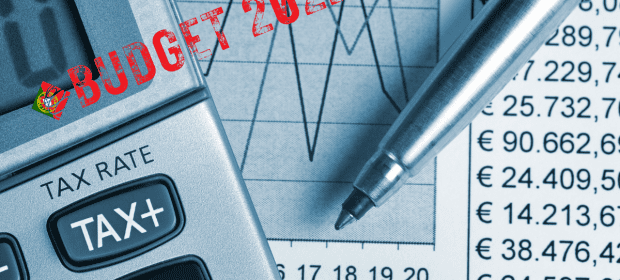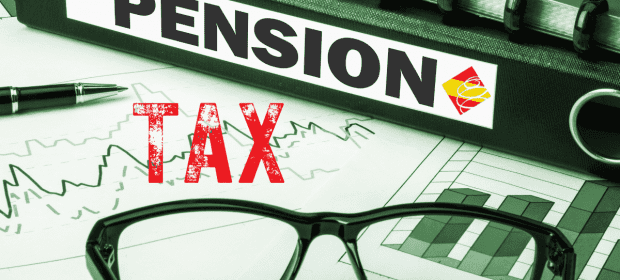Inheritance Tax in Catalunya
By Barry Davys
This article is published on: 11th July 2022

Inheritance tax in Catalunya is calculated using the same basic principles as the national system in Spain. As in the national system, the taxable entity is the person RECEIVING the bequest, not the person who has passed away.
However, the allowances (deductions) and rates of tax are different in the Automonous Community Catalunya from the national rate. The law that sets these rates and allowances is Catalunya Ley19/2010 which was amended in February 2014.
Who’s this article for?
- People living in Catalonia
- People who have recently inherited or are about to inherit
- People whose parents are doing inheritance tax planning
Overview
Inheritance tax in Catalonia is calculated in a different way than in many other countries and even in other autonomous communities in Spain. The tax to be paid is not necessarily bad. The tax can be less than in the UK for example.
What you get?
This guide gives a reasonable understanding of how Catalan inheritance tax works and the possible amount to pay. You get access to an adviser who specialises in this area and an introduction to an English speaking lawyer who specialises in helping International people living here.
Your Investment
The time taken to read the guide, and perhaps a second read as Catalan IHT tax takes some getting used to. You will also need to book an initial telephone call if you want advice specific to your situation.
If you are resident in Catalunya these are the rules that will apply. Here we have produced a guide to Catalan Inheritance Tax. The most important deductions available are as follows:
Personal Deductions
The starting point in making the calculation is to work out which Group the person receiving the inheritance belongs to as follows:
Group I Children, including adopted children, under the age of 21
Group II Children over 21, spouses, parents and grandchildren
Group III Close relatives such as brothers and sisters, aunts and uncles
Group IV More distant relatives or unrelated
Allowances/deductions available in Catalunya are:
Group I
Deduction of €100,000 plus €12,000 for each year under 21 years of age up to €196,000
Group II
Spouse: €100,000; Child: €100,000; Other Descendants: €50,000; Parents: €30,000
Group III
€8,000
Group IV
No deductions available
Disabled Heir
In addition to any personal deductions applicable a beneficiary who is disabled may add an additional €275,000 deduction if the disability is determined to be greater than 33% or €650,000 where it is greater than 65% disability
Heir over 75 years old
A deduction of €275,000 may be applied where the heir is over 75 years of age who is a beneficiary within Group II though this deduction is applied instead of the other allowances.
Inheritance of the Family Home
Where a property inherited is the main family home then a reduction amounting to 95% of the value of the property up to €500,000 may be made where the beneficiaries are the spouse, child or parent of the deceased as well as collateral relatives, older than 65, that lived with the deceased during the 2 years previous to the decease . The property may not be sold for a period of 5 years if the reduction is claimed.
Allowances available for the Inheritance of the Family Business
A tax deduction of 95% of the value of the interest held by the deceased in the business This applies to all beneficiaries who were related to the deceased to the third level of blood relative and persons in the employ of the business for at least 10 years.
Allowances available for income from Life Insurance Policies
A deduction of 100% is applicable on any income from a life insurance policy held by the deceased up to a maximum of €25,000 where the beneficiary is the spouse, descendant or parent of the deceased.
Inheritance Tax Rates in Catalunya:
Once all deductions have been applied the final amount of tax payable is determined then it is necessary to apply the relevant rate:
| Taxable Sum | Tax Payable on this Sum | Any Reminder up to | Applicable Rate on Remainder % |
| 0 | 0 | 50,000 | 7% |
| 50,000 | 3,500 | 150,000 | 11% |
| 150,000 | 14,500 | 400,000 | 17% |
| 400,000 | 57,000 | 800,000 | 24% |
| 800,000 | 153,000 | Above 800,000 | 32% |
Existing Wealth:
Once the relevant tax has been calculated the result is multiplied by a coefficient determined by the existing wealth of the beneficiary as well as the group to which they belong:
Existing Wealth Multiplier Coefficien
| Existing Wealth in Euros | Group 1 & 2 | Group 3 | Group 4 |
| From 0 a 500.000 | 1,0000 | 1,5882 | 2,0000 |
| From 500.000, 01 to 2.000.000 | 1,1000 | 1,5882 | 2,0000 |
| From 2.000.000, 01 to 4.000.000 | 1,1500 | 1,5882 | 2,0000 |
| More than 4.000.000, 00 | 1,2000 | 1,5882 | 2,0000 |
As a reminder the Groups referred to consist of the following beneficiaries:
Group I Children, including adopted children, under the age of 21
Group II All other descendants, spouses, parents and grandchildren
Group III Close relatives such as brothers and sisters, aunts and uncles
Group IV Distant relatives and unrelated
Special Deductions – Spouse
After applying the tax rates and coefficients above a discount of 99% shall be applied to any tax payable.
Special Deductions – Other Relatives Groups I & II
For Group I & II beneficiaries, apart from the spouse, the following discounts may be applied to the calculated amount of tax due, depending on the amount inherited:
Group 1
| Bottom of Taxable Band Euros |
Total discount to this level % |
Top of Taxable Band Euros |
Discount for this band % |
| 0,00 | 0,00 | 100.000,00 | 99,00 |
| 100,000 | 99,00 | 100.000,00 | 97,00 |
| 200,000 | 98 | 100.000,00 | 95,00 |
| 300,000 | 97 | 200.000,00 | 90,00 |
| 500,000 | 94.20 | 250.000,00 | 80,00 |
| 750,000 | 89.47 | 250.000,00 | 70,00 |
| 1,000,000 | 84.60 | 500.000,00 | 60,00 |
| 1,500,000 | 76.40 | 500.000,00 | 50,00 |
| 2,000,000 | 69.80 | 500.000,00 | 40,00 |
| 2,500,000 | 63.84 | 500.000,00 | 25,00 |
| 3,000,000 | 57.37 | upwards | 20,00 |
Group II:
| Bottom of Taxable Band Euros | Total discount to this level % |
Top of Taxable Band Euros |
Discount for this band % |
| 0,00 | 0,00 | 100.000,00 | 60,00 |
| 100,000 | 60,00 | 100.000,00 | 55,00 |
| 200,000 | 57,50 | 100.000,00 | 50,00 |
| 300,000 | 55,00 | 200.000,00 | 45,00 |
| 500,000 | 51,00 | 250.000,00 | 40,00 |
| 750,000 | 47,33 | 250.000,00 | 35,00 |
| 1,000,000 | 44,25 | 500.000,00 | 30,00 |
| 1,500,000 | 39,50 | 500.000,00 | 25,00 |
| 2,000,000 | 35,88 | 500.000,00 | 20,00 |
| 2,500,000 | 32,70 | 500.000,00 | 10,00 |
| 3,000,000 | 28,92 | upwards | 00,00 |
Special Deductions – Other Relatives Groups I & II
The discount shall be reduced by 50% should the beneficiary apply any of the following deductions:
- Family Business
- Any other deduction to the amount of tax payable except the deduction applicable to the family home.
Many expats pay more tax on their inheritance than they should because they fail to follow some simple rules.
To discuss how to pay only the appropriate amount, please click the button below to get in touch with us.
This information is intended as a guide only. It is based on the current legislation for Inheritance tax in Catalunya as at August 2017. A suitable qualified tax lawyer should always be used to calculate a specific liability. If you require the assistance of a tax lawyer please contact barry.davys@spectrum-ifa.com who will introduce you to an appropriate lawyer. Please also note that this guide does not apply to Gifts (donaciónes) which have their own rules.
At a time that is convenient for you
Portuguese capital gains tax – changes from Budget 2022
By Mark Quinn
This article is published on: 27th June 2022

If shares, investments or Portuguese property were acquired before January 1989 there is no capital gains tax on sale for Portuguese tax residents. In any other instances, capital gains tax is applied at 28% to any profits made.
Indexation relief is also available if they were held for more than 2 years and is applied on a sliding scale.
For example, if you decided to surrender a UK Stocks & Shares ISA or share portfolio, the gain made on sale would be taxed at 28% in Portugal. If no gain has been made, there is no tax to pay. There is no exemption for NHRs.
However, the Portuguese Budget for 2022 which was approved on 27 May 2022 introduces a change with effect from 1st January 2023 regarding the taxation of ‘short-term capital gains’ i.e. gains realised on assets that have been held for less than 365 days.
For investors whose taxable income (including the short-term realised gain) is €75,009 or more, the taxation will be increased from the flat rate of 28% (or 35% for investments held in blacklisted jurisdictions) to progressive rates, which can be as high as 48% (or even 53% if your total income exceeds €250,000.)
Investors can mitigate ongoing capital gains tax on their investments by using one of several “tax wrappers” available to Portuguese tax residents. Each wrapper will differ in terms of its features and benefits and the most appropriate structure will be different for each individual.
However, the purpose of such tax wrappers is to essentially act as a ‘trap’ on any gains. This means that you can be in control of the timing of any taxable events and potentially create a much lower overall tax figure. Equally important is that the underlying fund manager is not constrained in any investment decisions by punitive tax charges that could apply to short-term transactions.
Please talk to us to assess the different range of investment options and wrappers, and what the most appropriate may be for you and your family.
Are you thinking of moving to Spain
By Jeremy Ferguson
This article is published on: 23rd June 2022

“Its so nice holidaying here, I’d love to live here all year round…’’
If you are a UK resident and here on holiday, it is very often these times that get people thinking about retiring to Spain. The attractions of the slower pace of life, a completely different climate, all those extra hours of daylight and sunshine, a lower cost of living, ( depending on lifestyle!), eating out often – on and on the list normally goes.
When the UK was part of the European Union, taking the plunge and moving to Spain was relatively straightforward, aside from the obvious challenges of the actual move. You could sell up, jump on a plane and then when you were here, apply for residency, register at the town hall etc, and that was pretty much it.
Now however, that simply isn’t the case. There is the fact that as a UK citizen, you no longer have the freedom of movement within the EU, something many people still haven’t come to terms with. You can of course still come here to live, but you will need to make an application for a Visa. If you are looking to retire, then this needs to be a non lucrative Visa.
I work closely with experts who can assist with these applications, who know the process inside out and make this part all very straightforward for you.
The financial planning side of the whole process is also essential, and that of course is where I get involved. It is important you dispose of or organize your assets in the most tax efficient way you can before you leave the UK. For example, making sure your pensions are correctly dealt with and selling your main residence at the right time to name just a couple, and of course understanding the tax system and rates applicable once you are here.
One of the most important aspects of making your Visa application, (which has to be done at one of three Spanish embassies in the UK – London, Manchester or Edinburgh), is understanding what your finances need to look like to satisfy the Spanish requirements. These are mostly focused on the fact that they want to ensure you have enough money or income to live here self sufficiently.
So you need to satisfy what is known as IPREM, literally translated this means “The Public Multiple Effects Income Indicator”. As a non EU member applicant ( Third country National ), you need to demonstrate you have 4 times the IPREM requirement, plus 100% extra per beneficiary. So in simple terms, if a married couple are retiring here you will need to prove income of €2,895.10 per month, or a lump sum of €34,741.20 for each year. It is also worth noting, your Non Lucrative Visa needs renewing after a year (for the next two years) and again after three years, again for the next two years. After the end of year five you will then obtain permanent residency. This all has an effect on what money they will want to see you have, be it in the form of Pension income, savings, cash in the bank etc. This not only applies when you make your initial application, but also for the following four years.
So if you are thinking about moving to Spain? You will need to make an application for a Visa. If you are looking to retire, then this needs to be a non lucrative Visa, it is really important to have a good handle on the financial requirements, not just for the initial application but also for the subsequent few years. Most of my work has changed significantly now when working with people who are planning their move here, as it is so much more complicated than it used to be.
As we are dealing with similar situations on a regular basis, it enables us to make the process as easy as it can possibly be for individuals.
If you would like to find out more about what planning would be needed to make living in Spain a reality, then please feel free to get in touch.
Investment Property in Portugal
By Mark Quinn
This article is published on: 21st June 2022

I’m often asked for my opinion on property as an investment, either in Portugal or elsewhere and I must admit it doesn’t tick many boxes as an investment.
For example, it is generally subject to income tax, capital gains tax and succession tax, as well as ongoing local rates. It cannot be converted into cash quickly or easily (illiquid) and it is expensive and time-consuming to maintain. It can also come with administrative issues such as unruly tenants, rental void periods and due to its static nature, it is difficult to plan around.
Having said this, property continues to be a popular investment choice as it is easy to understand and you can touch it, giving investors a sense of security and reduced risk. Additionally, we probably all know a few ‘property millionaires’. So, what are the planning angles and how can you ‘get out’ and enjoy your spoils tax efficiently?
Capital gains tax (CGT)
Portuguese residents are subject to capital gains tax (CGT) on their worldwide property gains, unless the property was purchased before 1st January 1989, in which case CGT does not apply.
For Non-Habitual Residents (NHR) selling Portuguese property and non-NHRs, CGT is due on 50% of the gain and is added to your other income in that tax year and taxed at scale rates. In addition to this, if the property is located overseas, tax may also be due in the country the property is located. However, if there is a double taxation agreement between the two countries e.g. Portugal and the UK, you should not pay tax twice on the same gain.
Portuguese property
NHR status does not have an impact on the taxation of Portuguese property. The tax treatment is the same for NHR and normal residents, but despite the potential for eye-watering levels of tax, there are some reliefs available if the property you are selling is your main home – it does not apply to rental property sold in Portugal. The two reliefs mentioned can be used in isolation or conjunction.
- Main residence relief: You can mitigate all – or a portion of – the CGT by reinvesting the proceeds into another property in the EU or EEA. Any amount not reinvested is taxed
- Reinvestment into a qualifying pension or long-term savings structure: This is a relatively recent relief and is particularly advantageous for those wishing to downsize (and therefore will not fully reinvest the sale proceeds), or for those moving back to the UK or elsewhere outside of the EU/EEA. There are strict criteria for qualification and we can advise on this area but most notably, you or your spouse must be retired or above 65 and the gain must be reinvested in a qualifying structure
Non-Habitual Residence (NHR)
NHR gives those selling foreign property an advantage as gains are exempt from CGT in Portugal. But what about the tax due in the country the property is located? Let’s look at UK property as an example. The UK only applies CGT to gains accumulated since 6th April 2015 and you will also have your annual CGT allowance to deduct of £12,300 per person. Additional reliefs may also apply, further reducing any gains, but this will depend on whether the property sold was your home or an investment property.
For example, if you bought an investment property in Portugal in 1992 for £100,000 and it was sold today at £1m, ordinarily tax would be due on the £900k gain. But selling this as a non-UK resident, you only pay tax on the gain since April 2015. Using the straight-line method, the gain is £212,000 from which you can deduct your annual CGT allowance, leaving a taxable gain of £199,700. Assuming you had no UK income in that tax year, the tax due to HMRC would be £52,146 which is an effective rate of 5.7%.
Are you domicile or non-domicile?
By Mark Quinn
This article is published on: 16th June 2022

Domicile is often confused with residence, but it is quite distinct
The law of domicile is highly complex and has wide-ranging consequences on an individual’s tax position, as the recent furore surrounding Akshata Murty illustrates, but for most British nationals here in Portugal, domicile is a key factor for UK Inheritance Tax (IHT).
Individuals only have one domicile at a time and a very loose definition is ‘where you have a permanent home’. In my experience, this is often misunderstood and individuals who thought they were ‘definitely non-UK domiciled’ after living in Portugal for several years learn that in fact, they are very much still UK domiciled.
The are several types of domicile, namely ‘Origin’, ‘Choice’, ‘Dependence’ and ‘Deemed’ but here I will focus on the first two. Firstly, ‘Origin’. This is acquired at birth, usually from your father (or your mother if they were not married at the time of your birth). This is never fully lost but can be suspended by acquiring a new domicile of choice, but it is adhesive and will revive if the new domicile is lost.
Acquiring a domicile of choice involves forming a clear and fixed intention for a new country to be your permanent home, and therefore actually requires permanent residence.
Being non-UK domiciled is highly advantageous for UK IHT
The worldwide estates of UK domiciles are assessed for IHT in the UK, even if you live elsewhere. For non-UK domiciles, generally only UK based assets are assessed. It is worth noting here, that assets that derive their value from the UK but are held elsewhere e.g. company shares, will be deemed to be UK assets.

Shedding UK domicile is tricky
The burden of proof lies with the person claiming the change and the standard is particularly onerous. There is no checklist and your circumstances are looked at as a whole. Some factors that might be considered are family and business ties, location of friends and social interests, location of assets, acquisition of citizenship or languages spoken.
The adhesive nature of domicile is highlighted by Richard Burton’s failed attempt to change his domicile, which resulted in an IHT bill of £2.4m. Despite him living in Switzerland for 26 years, structuring his assets appropriately and subsequently dying there, the revenue was successful in arguing that his ‘mind and heart’ still remained in Wales. Their evidence being his choice to have the Welsh flag draped over his coffin and being buried with a book of Dylan Thomas poems. As you can see, what can be considered is very broad.
Traps
Non-domiciles by choice with a UK domicile of origin must be very careful with return visits to the UK, especially if they have a second home there. If they die as UK tax resident (by exceeding their day count) and were also deemed UK tax resident in one of the two preceding tax years, they are automatically deemed UK domiciled and their worldwide estate is subject to IHT.
A new domicile is retained until the new country is permanently abandoned, but unless another one is acquired immediately, your UK domicile of origin will revert automatically – even if you never set foot in the UK again.
Mixed domiciled couples must be careful. Normally assets passing between spouses are IHT exempt, but assets passing from a UK- domicile to a non-UK domiciled spouse are only exempt up to £325,000 unless they elect to be treated as UK domiciled for IHT purposes. This has a knock-on effect on their subsequent death. Usually, any challenge will come after your death, and it is up to your personal representatives to prove your intentions in life and gather evidence – which may not be possible, so you must ensure your record-keeping and evidence is strong.
Falling investment markets
By Mark Quinn
This article is published on: 9th June 2022

Markets have fallen recently with concerns over rising inflation and interest rates and the war in Ukraine. In this uncertain environment, clients are asking me: “should I sell?”, and those with cash to invest are uncertain if now is the right time to commit to investing.
Why do falling investment markets cause concern?
Rather than seeing movements in markets as being completely normal and part of the regular cycle in markets, I believe the media instills fear among investors. I follow the financial news every day and read headlines dominated by talk of slumps, crashes, stagnations, recessions etc. but rarely see positive news stories about investments and markets such as how many global stock markets reached all-time highs in 2021.
This is getting worse with internet-based news as “click bait” headlines are used to prompt us to click through to read these apparently disturbing events.
Humans are bad investors
Our brains are not designed to make sound investment decisions as we are subject to biases and cognitive distortions and our emotions, rather than fact and logic, overly influence our decisions. One of our biggest weaknesses is our loss aversion which can lead to not taking advantage of investing at low prices during market falls.
Professionals versus amateurs
We often see professional investors reacting in an opposite manner to the general public/retail investors. Many retail investors will sell and are fearful when markets fall but professionals will be taking advantage of lower prices and be purchasing investments.

Context for investing
It is important to reassess exactly why you should invest. Most people do so to protect their lifestyle as they want to ensure their investment and pensions maintain their real value after inflation over time – this isn’t possible in cash.
If you are investing for the long term, then you increase your chances of generating longer term growth and we know that, even though markets may go lower in the short term, over the longer term you are “stacking the odds” in your favour.
Time is on your side with investing
Data shows that the risk of stock market investment reduces with the time you spend in the market as you have the ability to weather the short term ‘blips’ in market. For this reason there is a popular stock market adage that time in the market is more important than timing the market.
Holding through downturn
The benefits of holding though short-term falls in the market were highlighted to me recently by Terry Smith, manager of the Fundsmith fund. He gave an example of a share he purchased at the end of 2007 for $7.07 and by 26th February 2008 it had lost almost 40% of its value at $4.28 – this promoted a lot of investor anger at his decision. However, this short term blip is dwarfed by the enormous increase the share price subsequently enjoyed, increasing in value to $172.39 by 4th February 2022. The company was Apple, until just last week the most valuable company in the world.
Tips for investors in this climate
- Invest as early as possible and remain invested – act against ‘herd’ instinct
- Remove the psychology from investment – draw up an investment plan and stick with it
- Minimise tax – one of the biggest eroders of investment returns
- Minimize fees on your investments and pensions – another big eroder of returns
- Asset allocation – predicting which parts of the market will weather the storm better is difficult, so ensure you have a correctly constructed portfolio which is widely diversified and importantly, has corelation benefits
Have you completed your tax returns in France?
By Katriona Murray-Platon
This article is published on: 3rd June 2022

- If you submitted it online and you have paid too much tax or exactly what is owed you will receive your statement between 25th July and 5th August.
- If you submitted by post and you have paid too much tax you will get your statement between 29th July and 31st August;
- If you submitted your tax return by post but you have paid exactly the right amount of tax you will get your statement between 2nd August and 31st August;
- If you submitted online but there is still tax to pay you will get your statement between 29th July and 5th August,
- If you submitted on paper and there is tax for you to pay you will get your statement between 5th August and 26th August.
If you have paid too much tax you should get the reimbursement around these periods. If you have tax to pay it should be taken from your bank account automatically. If not you have until 20th September to pay online. The money won’t be taken out of your account until 26th September. If you owe more than €300 tax, this amount will be taken in four payments between 26th September and 27th December 2022. If the amount due is less than or equal to €300 then this amount will be taken out in one payment on 26th September. Please remember that during September the 9th instalment of your monthly payment of income tax will be taken on 15th September, so you may have two tax payments in September (and in the following months if you owe more than €300).

A situation was brought to my attention about Capital Gains Tax on the main residence when you leave France. There was a court case in 2017 which reached the French Constitutional Court regarding the exemption from capital gains tax for the main residence. Whereas a French resident may vacate his/her main residence and has 12 months to sell it for it still to benefit from the main residence exemption, according to this decision if you are no longer French tax resident at the time of sale you lose this exemption on the capital gains.
Furthermore under Article 150 U, paragraph 2, line 2, of the French Tax Code the capital gains from the sale of a property are exempt from tax “for the sale of a property situated in France where the seller is an individual, not French resident, a national of a Member State of the European Union or another State which is part of the EEA having agreed with France an administrative assistance agreement to fight against fraud and tax evasion and provided that the person was tax resident in France continuously for at least two years at any period before the sale. The exemption mentioned in the first line of this second line applies only to one property per tax payer and up to €150,000 of net taxable capital gain, to sales carried out:
a) no later than 31st December of the fifth year following the year in which the seller ceased to be tax resident in France,
b) with no time restrictions, when the property is freely available to the seller at least since 1st January of the year before the sale”.
It is this section of the French Tax Code which could, according to some Notaires, no longer apply to British citizens selling their French properties and returning to the UK since Britain is no longer part of the EU. I have spoken to two Notaires about this and neither seemed to be bothered about it. But Notaires can take different views on things. So if you (or someone you know) are planning to sell what is currently your main residence in France and move back to the UK make sure you clarify exactly what you have to do with your local Notaire and do not move back to the UK and establish UK tax residency before the sale is complete.
After a busy month of May with many people contacting me with tax questions, I am looking forward to a more normal month of June and getting out in the sunny weather to see clients. So if you would like to arrange an appointment or need to speak to me about any matters please do get in touch!
Spanish Tax on Personal Pensions
By John Hayward
This article is published on: 1st June 2022

Further to the recent article written by my colleague Charles Hutchinson regarding temporary annuities and their taxation of annuities in Spain, I am expanding on the tax treatment of personal pensions generally.
Depending on the type of retirement income that you are receiving, it will either be taxed as regular income, “work” income as the Spanish call it, or savings (passive) income with a different set of tax rates being applying to each type. It is generally understood that the income from pension plans that received tax relief (effectively where the contributions were deducted from income before tax was calculated) will be treated as work income.

The word “annuity” is used in a general sense in the UK as the regular payment which comes from a pension scheme. It is possible to convert a personal pension fund to an annuity, with a view to guaranteeing a fixed income for life albeit waiving the right to the capital value of the pension pot. Whether or not it is advisable to purchase an annuity is another matter. This will depend on personal circumstances.
As far as Spain is concerned, an annuity is a form of income that attracts favourable tax treatment. An annuity in Spain is either temporary or for the whole of life. The annuity is purchased. It is not income drawn from an existing pension fund unless that fund is encashed to buy the annuity. At that point though there is the possibility of a large tax bill on the encashment.
The key points here are that:
- Not all pension income is treated the same way for tax
- Declaring work income as an annuity is not correct and, if reported intentionally in this manner, it is possible that it will be treated as fraud. The Spanish tax office is making a special effort right now to check on this. They can go back at least 4 years with their investigations
- Care should be taken when accessing retirement income to make certain that, not only is it being declared in a lawful way, but also that you do not leave yourself open to a nasty and unexpected tax bill
Contact me today for more information on how we can help you to protect your assets from unnecessary taxation and make more from your money, protecting your income streams against inflation and low interest rates, to talk about Spanish Tax on Personal Pensions or for any other financial and tax planning information contact me at:
john.hayward@spectrum-ifa.com or call (+34) 618 204 731 (WhatsApp).
Buying property in Portugal
By Mark Quinn
This article is published on: 28th May 2022

At the start of the buying process it is essential to sort out your residency status, financials and tax planning before you can buy a property in Portugal.
Our Portugal Manager recently spoke to Rebecca Thomson, Co-founder and Real Estate Consultant at Liberty Real Estate about the simple steps one must take before making the move.
Mark expertly explains how to apply for residency in Portugal, various visas and how to benefit from the NHR scheme.
Non-EU citizens, including the British post-Brexit, who wish to permanently settle in Portugal, must apply for a visa for the right to stay. EU citizens on the other hand have the right to freedom of movement and therefore have an automatic right to stay, so do not need to apply for a visa.
There are several visa options available in Portugal and the most common are the Golden Visa and the D7 visa.
Both visas allow access to the Schengen area, ultimate permanent residence or Portuguese citizenship, and a gateway into the Non Habitual Residence (NHR) tax scheme.
The key difference between the two programs comes down to one of cost versus flexibility. The D7 visa is clearly a lower cost route to Portuguese residency, both in terms of the fees and that there is no investment requirement as for the Golden Visa. However, the D7 route does have substantially longer minimum stay requirements.
So, if you are thinking of making a move to Portugal, or would like to benefit from the available tax incentives, watch the full interview in our informative video below.
Investment management styles
By Mark Quinn
This article is published on: 27th May 2022

There are several different investment management styles to consider and each will have benefits and drawbacks. The key difference are between a managed/active/discretionary route, and a passive/tracker approach, and this can be a divisive area within the investment industry.
In order to put into context the differences between these styles and which approach may be right for you, let’s first look at what a stock market index is.
An index simply measures the performance of a group/basket of shares. For example, the S&P 500 index tracks the performance of the shares in the largest 500 companies in America. As the US market is the largest stock market in the world, and the US is the world’s largest economy, it is often seen as a barometer for the health of global markets in general. The equivalent index in the UK is the FTSE 100 index.

Managed/active management/discretionary
Historically, most private investors would invest through a fund manager. In this way, you would pay an annual percentage fee to an investment institution to actively manage your investment i.e. make the buying and selling decision on your behalf.
The aim of investing in managed investments is to generate better investment returns than the stock market index as a whole, or another appropriate benchmark.
Discretionary investment is a specialist branch of managed investment whereby the manager has a greater range of investment powers and freedoms to make buying and selling decisions without your consent (although always within with the remit and investment powers that you grant at outset).
Over recent years there have been numerous studies to suggest that many fund managers do not achieve their aims of beating their respective benchmarks, and it has led some investors to favour a “passive” investment approach.
Passive or index trackers
Passive investment does not employ a fund manger to make decisions, and instead of trying to outperform the market, you simply ‘buy’ the market as a whole. For example by investing in an S&P 500 tracker, you would effectively be purchasing the top 500 shares in the US stock market.
The key difference between the managed style is cost i.e. whereas a manager may charge between 1-2% per annum to manage your fund, you can access a tracker fund from as little as 0.1% which can make a huge difference to your fund value cumulatively.
Proponents of this approach accept they will only even achieve the return of the market as a whole (with no outperformance) but because you are spending far less in fees, believe they will do better over the longer term.
Proponents of active management on the other hand highlight the drawbacks of the passive approach viz. in a falling market, you will only ever track a falling market, tracker funds “blindly” sell what may otherwise be high quality investments at inopportune times, and that tracker investments can still be complex to understand, such as the difference between ‘synthetic’ versus ‘physical’ tracking methods.
Summary – balance pays
As my previous two articles have demonstrated, tax and investment planning generally involves shades of grey, rather than black and white solutions and in practice we do not believe either approach is the ‘holy grail’.
Rather each management style can offer benefits within a balanced portfolio. Holding passives can reduce the overall cost of your portfolio (thus increasing your net return) and using managed funds can complement by avoiding “blind” automatic sales and potential downside mitigation.
Whichever route you choose, minimising fund fees is crucial as it is the biggest eroder of returns over time.



